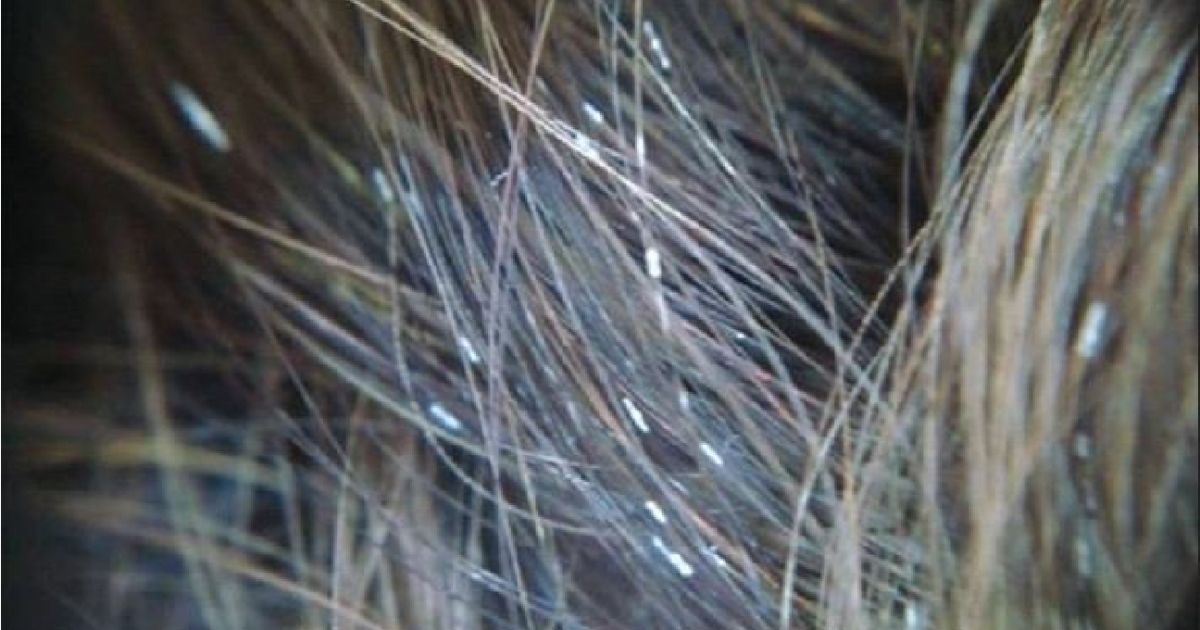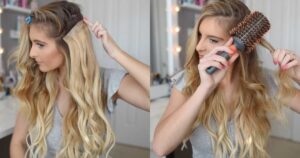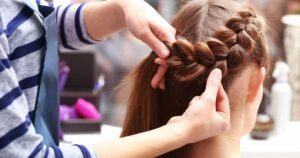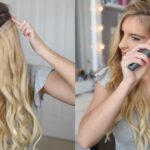If you’re worried about whether lice treatment will ruin your hair color, you can breathe easy. Most lice treatments, like shampoos or combs, are designed to target and eliminate lice without affecting your hair color. They primarily work on parasites and don’t contain harsh chemicals that would strip or alter the color of your hair.
However, it’s always a good idea to check the product label and consult with a professional if you have concerns, especially if you have recently dyed your hair or have a unique hair color. In general, lice treatments should leave your hair color intact, allowing you to address the infestation without sacrificing your style.
Can I Dye My Hair Even If It Has Lice?
Having lice can be a distressing experience, but it doesn’t necessarily mean you have to give up on your hair color dreams. If you’re wondering whether it’s possible to dye your hair while dealing with a lice infestation, the answer is a bit complex. While some lice treatments can be harsh on your hair and color, others are gentler. Let’s delve into the world of lice treatment and its potential effects on your hair color.
How Long After Lice Treatment Can You Dye Your Hair?
After successfully treating lice, it’s natural to want to get back to your regular hair routine, which may include changing your hair color. The timing here is crucial. Lice treatments can leave your hair more sensitive and, in some cases, slightly damaged.
It’s advisable to wait at least a week after your lice treatment before attempting to dye your hair. This waiting period allows your hair and scalp to recover from the treatment, reducing the risk of any adverse effects on your hair color.
Will Lice Treatment Hurt Colored Hair?
For those with colored hair, the idea of lice treatment can be particularly worrisome. You’ve invested time and money in achieving that perfect hair hue, and you don’t want your efforts to go to waste.
The good news is that many lice treatments are designed to target the parasites without causing significant harm to your hair color. They are primarily focused on eradicating lice, and they don’t typically contain the harsh chemicals that strip or alter your hair color. In fact, they are quite different from a color remover, which is used to deliberately remove hair color.
.
Does Lice Shampoo Ruin Hair?
Lice shampoos are a common choice for treating lice infestations. These shampoos contain specific active ingredients that effectively kill lice and their eggs. However, the impact of lice shampoo on hair can vary depending on the product and how it’s used.
While lice shampoos are generally formulated to be gentle on hair, frequent use or using the product incorrectly can lead to dryness and potential color fading. If you’re considering a lice shampoo, it’s essential to follow the instructions carefully to minimize any impact on your hair color.
Will Dying My Hair Kill the Lice?
Now, you might be wondering if you can kill two birds with one stone by using hair dye to both change your hair color and get rid of lice. While hair dye can change your hair color, it won’t effectively kill lice or their eggs. Lice are resilient parasites, and they require specific treatments designed to eliminate them. Attempting to use hair dye as a lice treatment is not recommended and is unlikely to be effective.
Will Over-The-Counter Lice Shampoo Ruin My Hair Color?
Over-the-counter (OTC) lice shampoos are accessible and widely used for lice treatment. The impact of these products on hair color is generally minimal, as they are designed to focus on lice eradication.
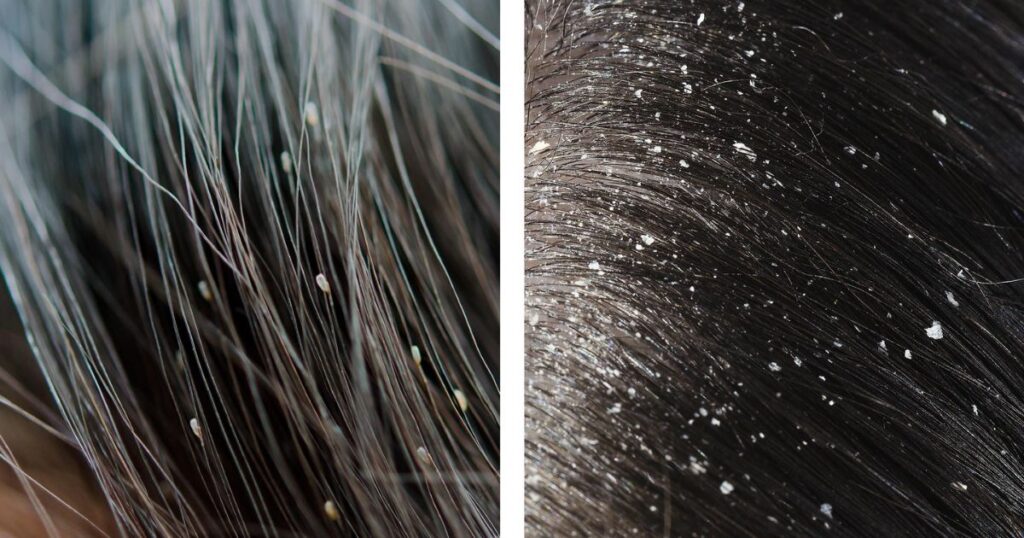
However, individual reactions to lice shampoos can vary. Some people may experience minor changes in hair color, such as fading if they use lice shampoo frequently. To ensure minimal color disruption, it’s important to follow the recommended usage and consult with a professional if you have concerns about potential damage to your hair color.
The Impact of Lice Treatment on Hair Color
| Lice Treatment | Impact on Hair Color | Comments |
| Over-the-Counter Shampoos | Generally Safe | Designed to be gentle on hair. Check for color-safe options. |
| Prescription Medications | Generally Safe | Formulated to target lice, not hair color. Consult with a healthcare professional for specific concerns. |
| Natural Remedies | Minimal to No Impact | Many natural remedies are hair-friendly. Rinse thoroughly to avoid residue. |
| Professional Lice Removal | Generally Safe | Professionals use specialized techniques and products, which are typically hair-safe. |
| Consultation with a Dermatologist | Personalized Advice | If you have unique hair care needs or concerns, a dermatologist can provide tailored recommendations. |
Remember, individual experiences may vary, so it’s always a good idea to read product labels, consult professionals if needed, and take precautions to protect your hair color during lice treatment.
Is There a Lice Treatment that Is Safe for Hair Color?
If maintaining your hair color is a top priority, you may be wondering if there are lice treatments that are gentler on your colored locks. Fortunately, there are treatments available that prioritize both lice removal and hair care. Some lice treatments, often available at specialty lice clinics, use natural and non-toxic ingredients to minimize any negative impact on your hair color. These treatments aim to protect your hair while effectively eliminating lice and nits.
Can I Dye My Hair After Lice Treatment?
Once you’ve successfully treated a lice infestation, you might be eager to return to your hair color goals. The waiting period between lice treatment and hair dye is essential to ensure that your hair and scalp have recovered. After about a week, you can consider dyeing your hair, but it’s crucial to follow some precautions:
Consult a Professional
Before you decide to dye your hair, it’s a good idea to consult a professional hairdresser. They can assess the condition of your hair and provide guidance on the best course of action.
Choose Gentle Dye Products
Opt for hair dye products that are known for being gentle on hair. Look for those that contain nourishing ingredients to help minimize any potential damage.
Perform a Strand Test
Before applying the dye all over, perform a strand test to see how your hair reacts to the dye. This helps you evaluate the color outcome and any adverse reactions.
Monitor Color Changes
Keep an eye on your hair color as it develops. If you notice unexpected color shifts, consider reaching out to a professional for guidance or color correction.
Frequently Asked Questions
Will lice treatment ruin my hair color immediately?
No, lice treatments are typically designed to target lice and don’t immediately alter hair color. However, some treatments may affect color over time, especially with frequent use.
How long should I wait to dye my hair after lice treatment?
It’s best to wait at least a week after lice treatment before dyeing your hair. This waiting period allows your hair and scalp to recover from the treatment.
Can I use hair dye to get rid of lice and change my hair color at the same time?
Using hair dye is not an effective way to eliminate lice. Lice require specific treatments, and attempting to use hair dye for this purpose is not recommended.
Is over-the-counter lice shampoo safe for colored hair?
Most over-the-counter lice shampoos are safe for colored hair when used as directed. However, individual reactions may vary, so it’s important to follow instructions and monitor your hair.
Are there lice treatments that won’t affect my hair color?
Yes, there are lice treatments designed to be gentle on hair color. Some treatments use natural and non-toxic ingredients to protect your hair while effectively eliminating lice and nits.
Conclusion
In conclusion, lice treatment doesn’t have to spell disaster for your hair color. By choosing the right treatment, allowing a recovery period, and following the right precautions, you can enjoy both a lice-free head and the hair color you desire. Remember to prioritize the health of your hair and seek professional guidance when needed to achieve the best results.
